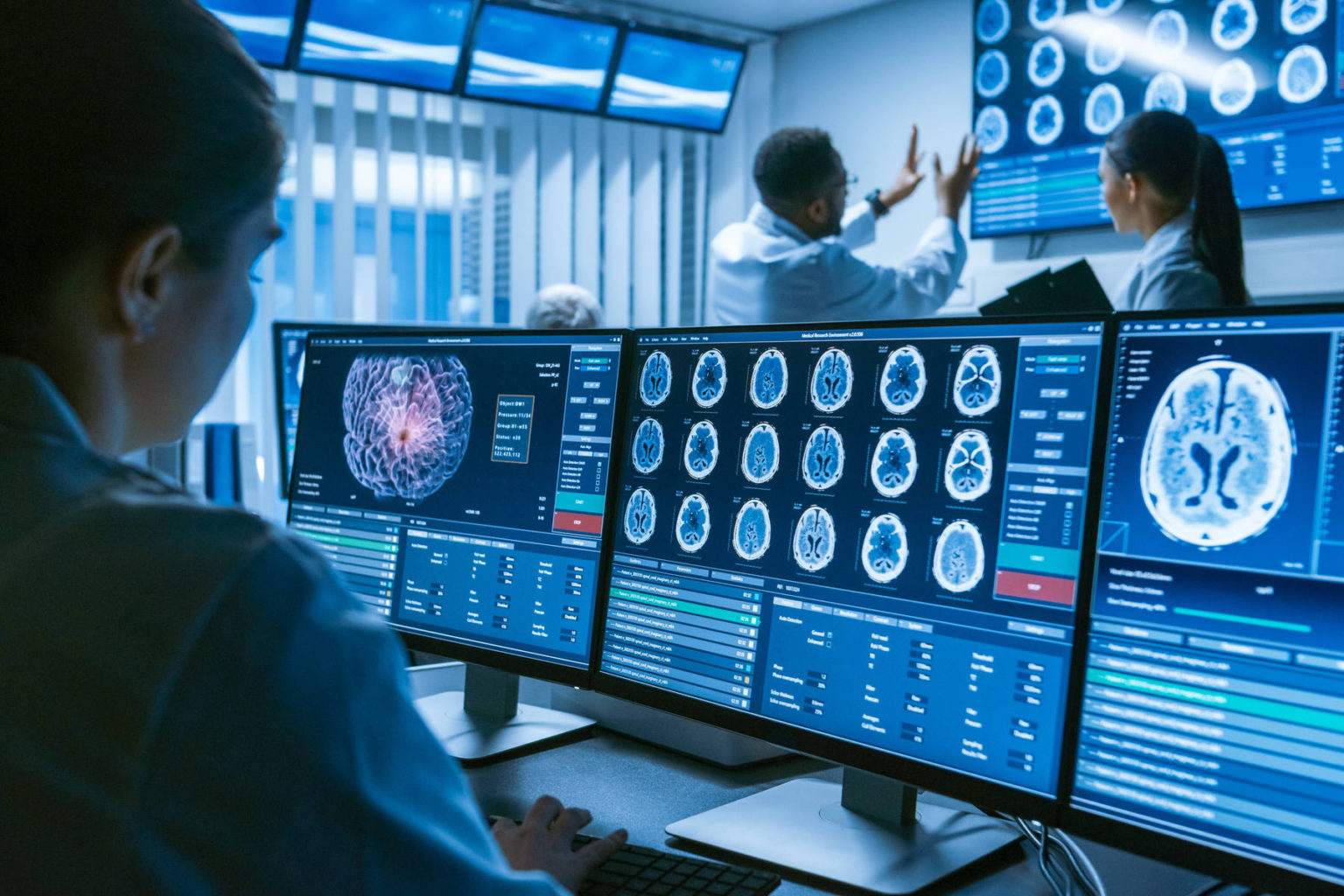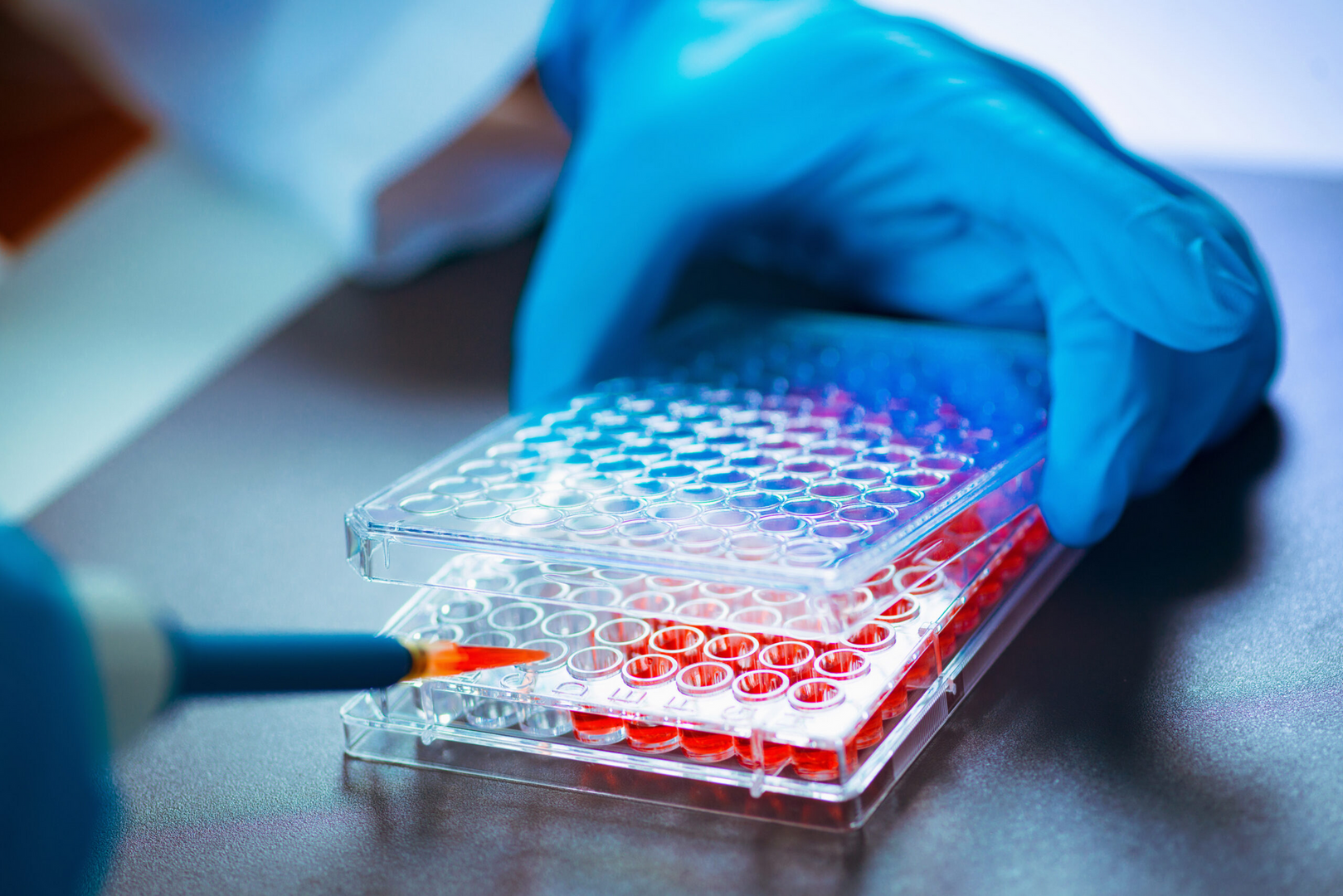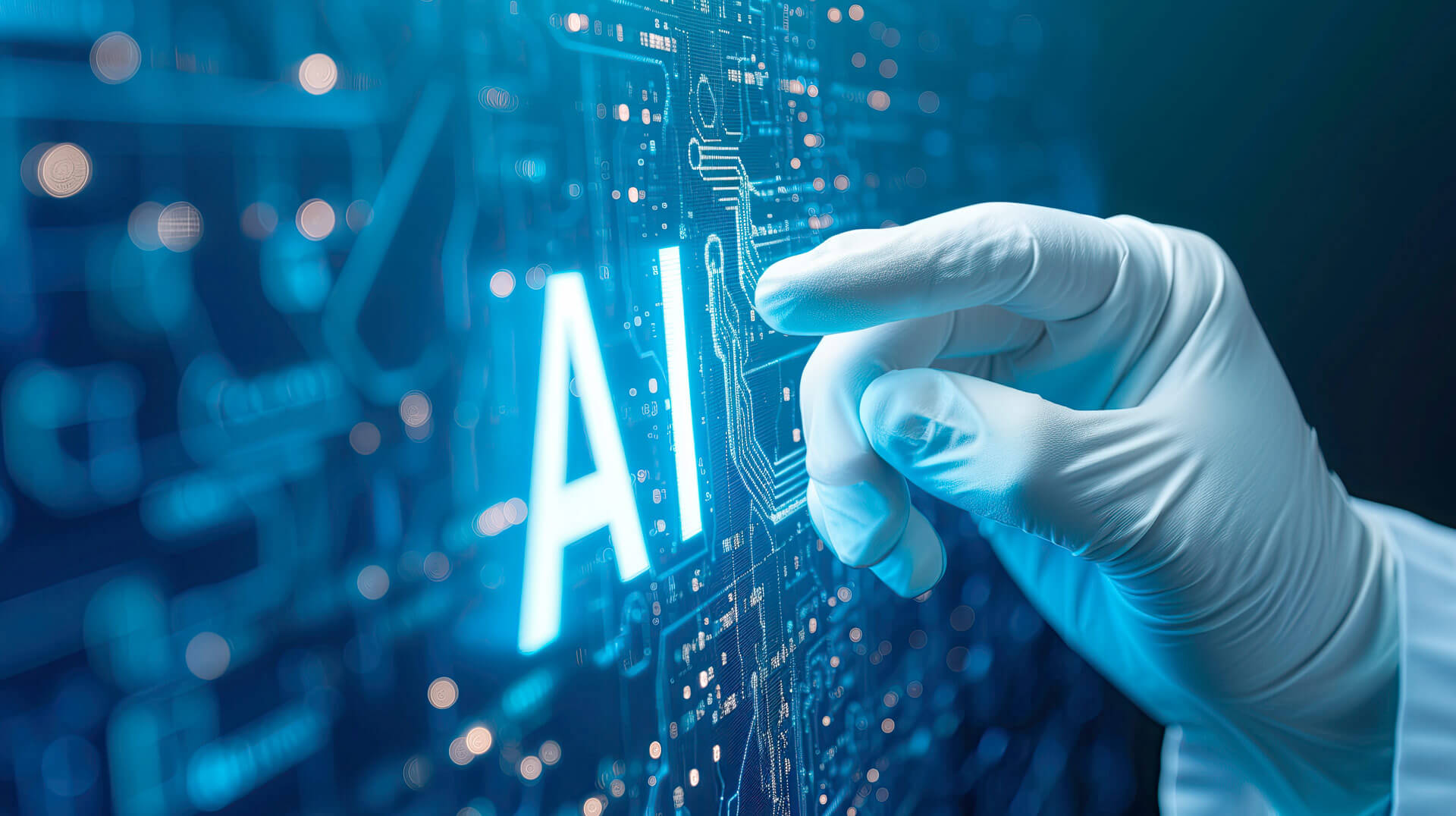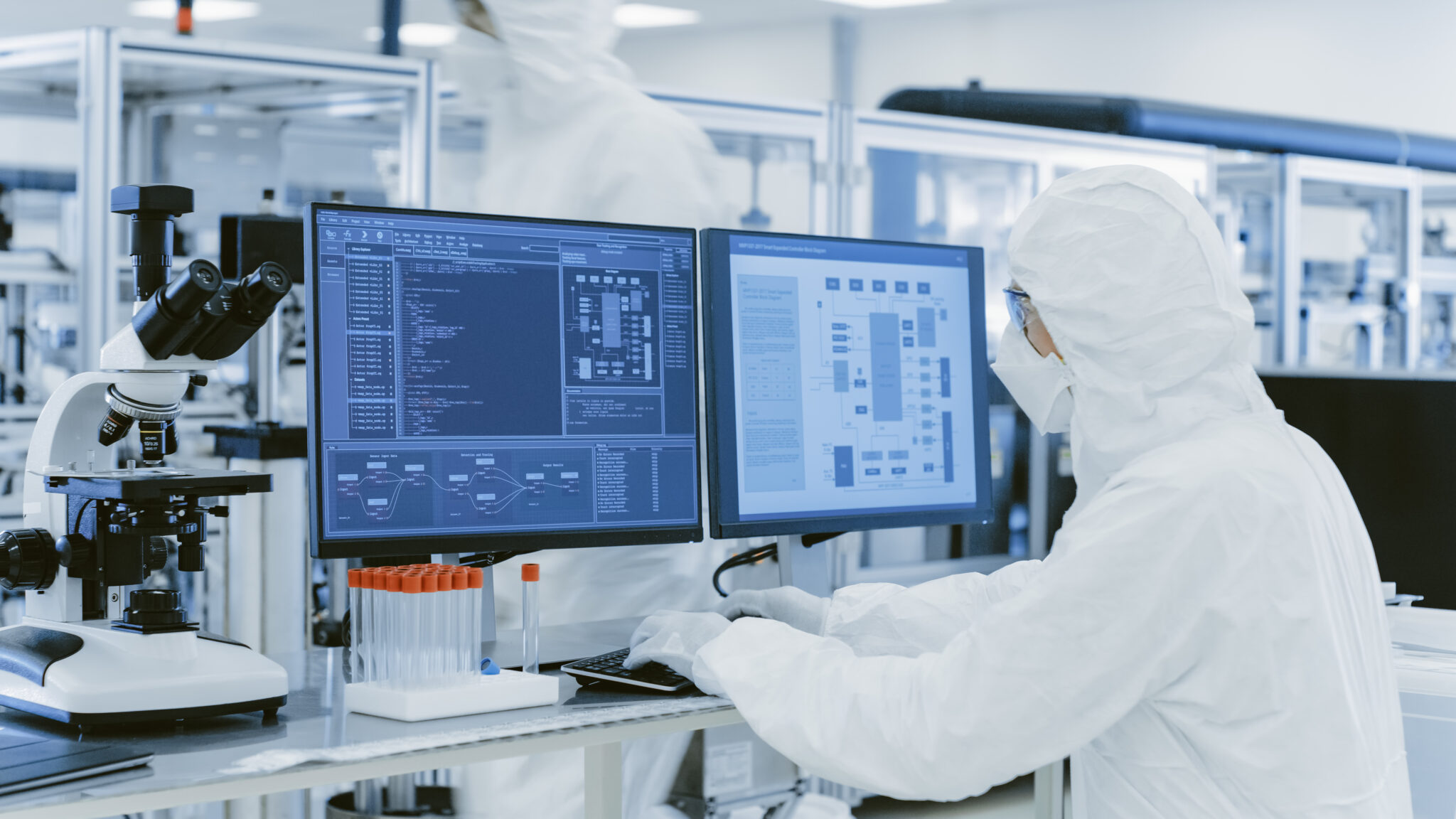The modern medical industry is experiencing a growing revolution in research and development, with AI in biomaterials emerging as a key pillar of this transformation. The integration of artificial intelligence with biotechnology enables the development of advanced materials used in diagnosis and treatment with innovative precision. This breakthrough is paving the way for improved healthcare quality and reduced patient suffering. By leveraging AI in biomaterials, researchers can design and develop materials that meet the highest safety and efficacy standards. In this article, we explore the impact of AI on biomaterials, from their design and development to understanding their complex interactions with the human body and their promising future in enhancing medical technologies.
Designing and Developing Biomaterials with AI
With rapid advancements in medicine and bioengineering, biomaterials have become an essential component of therapeutic and diagnostic strategies. Traditionally, these materials served as structural supports to aid healing and restore damaged tissues in cardiac, orthopedic, and dental surgeries. However, their role has now expanded beyond mere structural support to become dynamic components that seamlessly integrate with natural tissues.

AI in biomaterials plays a crucial role in redefining the design and development process by offering advanced analytical tools that help researchers:
- Organize and analyze vast amounts of scientific and experimental data.
- Predict the properties of new materials and their interactions with cells and tissues.
- Reduce reliance on time-consuming and costly traditional experiments.
For instance, machine learning models can identify patterns and key factors influencing the successful integration of biomaterials with tissues. This allows for the development of materials with enhanced performance and faster adaptability in therapeutic applications. As a result, AI in biomaterials is becoming a strategic tool for improving research accuracy, efficiency, and achieving faster, validated results.
Understanding Complex Interactions Between Biomaterials and Biological Systems
Since the introduction of biomaterials in medicine, understanding their interactions with the human biological system has been a major challenge. Early implant success rates were limited due to the unclear effects of these materials on surrounding cells and tissues. However, over time, concepts like biocompatibility have emerged, highlighting the need to redefine and update standards for evaluating these interactions.

AI in biomaterials provides advanced solutions to address these challenges by:
- Analyzing complex biological data using techniques like natural language processing and predictive modeling.
- Aggregating and standardizing information from multiple sources to create comprehensive databases that precisely identify chemical and biological interactions.
- Developing models that simulate the behavior of biomaterials inside the body, predicting potential adverse reactions.
A deep understanding of biochemical and mechanical interactions between biomaterials and cells is essential for improving material design and ensuring safety in medical applications. By analyzing these interactions in detail, AI helps establish new evaluation criteria that consider subtle differences in how biomaterials interact with tissues, leading to optimal integration between the material and the body.
The Pioneering Role of AI in Performance Optimization
Evaluating biomaterials requires an integrated approach that combines traditional methods with modern technological advancements. While conventional laboratory tests are precise, they are often time-consuming and resource-intensive. AI in biomaterials is revolutionizing this process by:
- Developing predictive data-driven algorithms to simulate biomaterial behavior under various conditions.
- Providing analytical tools to assess mechanical and biological performance under changing conditions, such as mechanical stress, degradation, and chemical interactions.
- Reducing the need for costly and lengthy live experiments by offering precise results based on digital analysis and mathematical modeling.
Additionally, AI-driven technologies help predict potential risks, such as adverse reactions or the release of harmful byproducts. By leveraging large-scale databases and deep learning techniques, researchers can identify patterns and factors that impact the long-term safety of biomaterials. This allows for modifications in design and development before advancing to clinical trials.

This innovative approach to integrating AI in biomaterials not only enhances performance but also accelerates innovation and continuous improvement in medical products. Moreover, it strengthens regulatory and consumer confidence by providing solid evidence of the safety and effectiveness of new biomaterials.
A Bright Future for AI Integration in Biomaterials
With the growing expansion of artificial intelligence applications across various scientific fields, the future of AI in biomaterials looks incredibly promising. Experts predict that this integration will lead to the development of smart biomaterials capable of dynamically interacting with biological environments. This advancement paves the way for personalized treatments tailored to each patient while also enhancing diagnostic and therapeutic outcomes through AI-driven sensors and monitoring systems. These innovations contribute to early disease detection and continuous health condition tracking.
The integration of AI in biomaterials also boosts efficiency in research and development by leveraging advanced analytical techniques, significantly reducing the time from innovation to real-world application. Furthermore, this technological synergy represents a major step toward improved ethical standards, as it minimizes reliance on animal models for laboratory experiments. AI-powered digital models provide promising alternatives for analyzing biological interactions without the need for live testing, aligning with global efforts to promote animal welfare and elevate scientific research standards.
Innovation and Collaboration as Key Pillars
The future of AI in biomaterials cannot be discussed without emphasizing the importance of interdisciplinary collaboration. Integrating medical engineering, data science, and molecular biology fosters a comprehensive research environment where knowledge and expertise can be exchanged. This cross-disciplinary approach enables researchers to tackle the complex challenges associated with biomaterials and accelerate their practical applications.
Developing standardized data platforms and advanced information systems is essential for consolidating information and streamlining its use in predictive modeling. Additionally, providing specialized educational and training resources for researchers will raise awareness of AI’s significance in biomaterials, promoting widespread adoption in laboratories and global research centers.

Challenges and Future Opportunities
Despite the numerous benefits offered by AI in biomaterials, several challenges must be addressed, including:
- The need for high-quality and consistent data to effectively train AI models.
- Technical difficulties in interpreting algorithm-generated results, as the complexity of biological interactions often requires expert intervention.
- Security and privacy concerns related to storing and utilizing biological data, necessitating strict policies and procedures to protect sensitive information.
However, the future opportunities in this field remain vast. AI-driven biomaterials are expected to enhance clinical trial success rates, reduce costs, and accelerate innovation and development. Continued investments and strategic partnerships between universities, research institutions, and pharmaceutical industries will play a crucial role in ensuring sustainable and impactful progress.
In conclusion, artificial intelligence in biomaterials represents the gateway to the future of smart healthcare, where technological innovations seamlessly integrate with human needs to create a transformative shift in the quality of diagnosis and treatment. In this context, HSI Biomedical Engineering Training Center offers you an exceptional opportunity to embark on this future through specialized training programs in medical engineering, designed to equip you with the knowledge and skills needed to lead in this rapidly evolving field. Join us today and be part of a generation shaping the future.
Source: How artificial intelligence shapes the future of biomaterials?